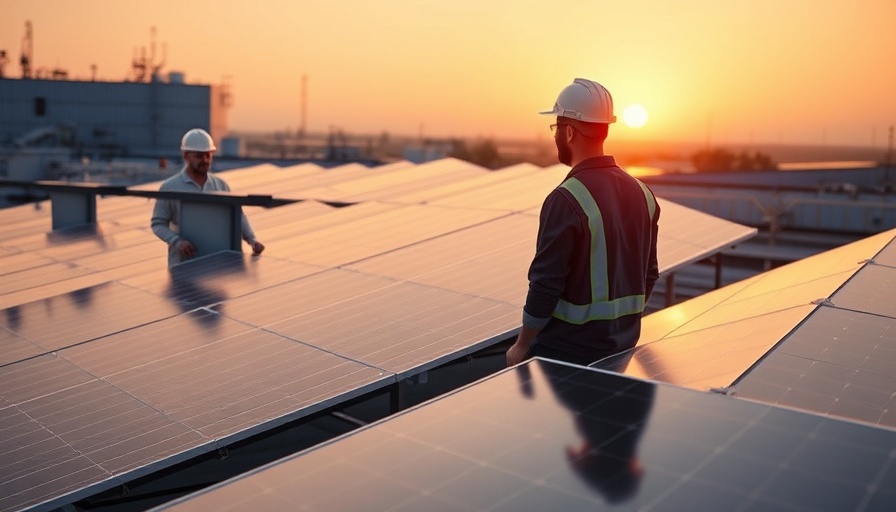
Decentral Energy and Futuregrowth: A New Chapter in Renewable Financing
On February 24, 2025, Johannesburg's energy landscape witnessed a significant leap forward as Decentral Energy secured a R300 million loan from Futuregrowth Asset Management. This funding commitment is poised to accelerate the growth of Decentral Energy's integrated energy portfolio, reinforcing its position as a leading contender in the renewable energy sector of South Africa.
The Major Implications of This Funding
The new funding is not just a capital injection but a strategic move that aligns with ongoing efforts to bolster energy security and sustainability across multiple sectors including retail, agriculture, tourism, and industrial. Decentral Energy has established itself as a pioneer, with over 100 behind-the-meter energy installations operating through a mix of solar photovoltaic (PV) systems, battery storage solutions, and backup generators.
Redefining Energy Resilience Amidst Challenges
Given South Africa's history of load shedding and unstable electricity supply, this financial backing is a timely boost. As Luel Culwick, Executive Director of Decentral Energy, stated, the partnership with Futuregrowth not only signifies significant growth but also emphasizes the need for energy solutions tailored to the unique demands of South African consumers. The expanding portfolio will play a key role in ensuring energy resilience and sustainability amid a market grappling with instability.
How This Funding Will Drive Growth in Renewable Energy
Decentral Energy plans to use the funding to expand its reach, enhance its technological capabilities, and innovate energy solutions that can drive down costs while boosting energy security for clients—from local businesses to large agricultural firms. The investments made from this loan into over 60 solar PV and battery storage assets exemplify a crucial step in achieving South Africa’s Integrated Resource Plan (IRP), which emphasizes a transition towards renewable sources.
Futuregrowth’s Strategic Commitment to Sustainability
The culmination of this financial commitment signifies Futuregrowth’s unwavering dedication to impactful and sustainable infrastructure. Their focus on financing projects that not only deliver economic benefits but also contribute to the overall energy security of the nation is fashionable in a world increasingly concerned about climate change, carbon emissions, and the pressing need for a just energy transition.
The Bigger Picture: Energy Transition in South Africa
Decentral Energy’s moves represent a microcosm of the larger global trend towards a greener economy. The continual push for renewable energy solutions amidst rising fossil fuel costs and environmental degradation highlights a critical shift towards a diversified energy mix. As South Africa strives to meet its Nationally Determined Contributions (NDC) under the Paris Agreement, funding initiatives like this pave the way for innovative financing solutions that can transform the energy landscape.
Relevant Insights for Stakeholders
This loan and subsequent project activations are not just beneficial for Decentral Energy but also serve as a blueprint for how financial institutions can effectively engage with independent power producers (IPPs) to promote sustainable development. Investors are encouraged to recognize such partnerships as catalytic factors in realizing energy transition goals.
Closing Thoughts: The Path Forward
In a world where energy crises loom large, and the need for sustainable solutions is more pressing than ever, Decentral Energy's advancement with Futuregrowth heralds a promising future for South Africa's energy infrastructure. Stakeholders in the energy domain should observe this strategic partnership, as its outcomes may set a compelling precedent for future renewable investments.
As professionals navigating the complexities of energy management and policy, we must align our interests with sustainable practices that enable energy efficiency and encourage a circular economy. The future of energy relies not only on innovations in technology but also on pioneering collaborations like that of Decentral Energy and Futuregrowth. What measures can your organization take to engage with and invest in similar sustainable ventures?
 Add Row
Add Row  Add
Add 


Write A Comment